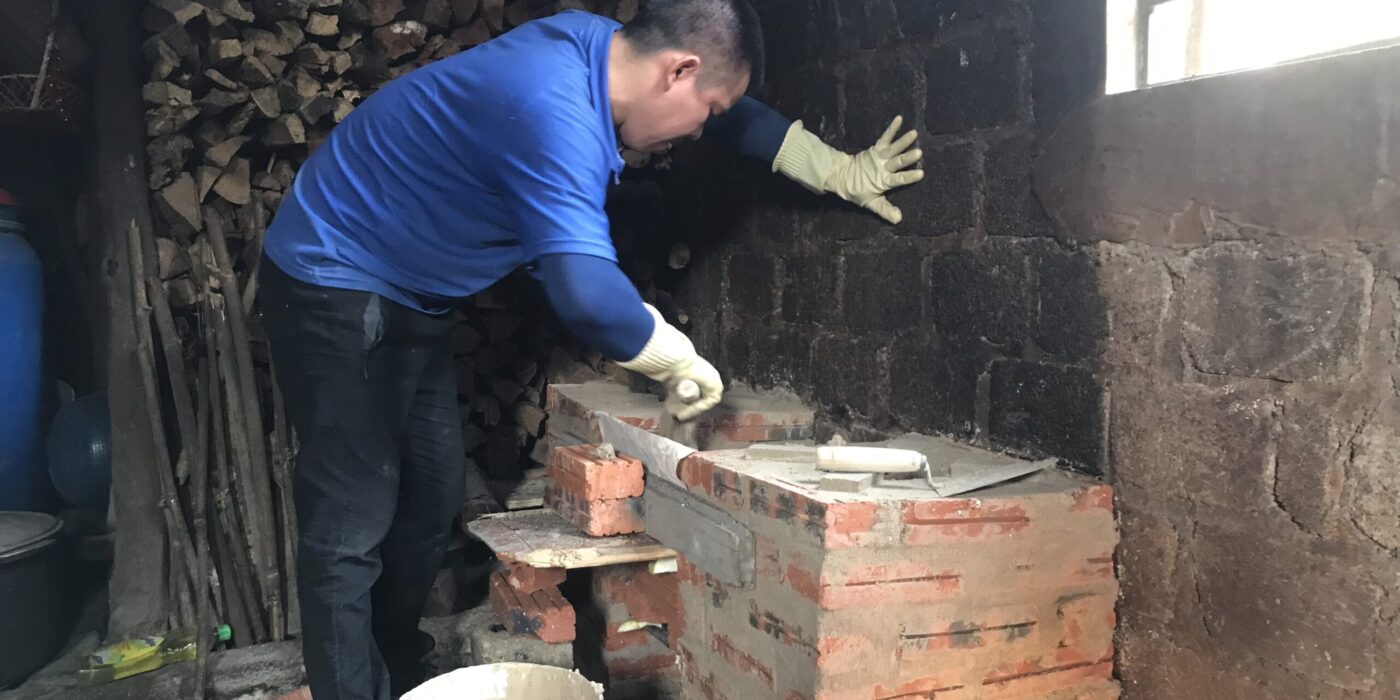Vietnam is recognized as one of the world's most biodiverse…

Build wood-saving stoves to decrease tree cutting
In February 2023, PanNature supported the construction of 8 wood-saving stoves for 8 households in Pa Cop village, Van Ho commune, Van Ho district, Son La province.
Pa Cop village has the largest number of poor households in Van Ho commune (nearly 40%), most of which are H’Mong people. People here still maintain the habit of using firewood for cooking, heating, drying food, and making fabric. Traditional wood stoves often produce an uncontrollable amount of indoor smoke, causing fire risk in the dry season. In addition, this type of stove can only take advantage of 10-15% of the heat generated, so it consumes a lot of firewood. It is estimated that a household can use up to 10m3 of firewood per year, especially in the 3 months of the New Year, when one household can consume up to 5m3 of firewood. This has put significant pressure on the increasingly degraded forest timber resources. Furthermore, the responsibility for collecting firewood and cooking often falls on women, so women face higher health risks.
PanNature realizes the need to upgrade to a new type of stove to save more firewood and limit the risk of smog pollution affecting health. Through the online crowdfunding platform GiveNow, PanNature has received an amount of nearly 12 million VND.
PanNature discussed with the community, helping to choose a wood-saving stove suitable for the needs of each family and selecting households that need support. By 14th February, 8 wood-saving stoves had been built and handed over to the households.
The selected households are directly involved in supporting the stove building to learn how to build the stove. Ms. Song Thi Pang, a family member who received a stove, said: “My family was very glad to receive a new stove. From now on, it will help us to reduce firewood.”
Vang A Kho, another recipient household member, said, “I am grateful for this program and hope that the improved stove will be replicated throughout the commune.”
|
Van Ho is the district with the largest forest area in Son La province, one of the few localities where an extremely rare population of white-cheeked gibbons habitates. This species is native to Vietnam, Laos, and Yunnan province (China), belongs to the most endangered primate group in the world, and is classified as critically endangered by the IUCN Red List. It is estimated that about 25% of Van Ho’s natural forest area is destroyed and degraded. Reducing the tree-cutting for firewood through building wood-saving stoves is part of the Community Ecology Conservation Program in Van Ho, along with many other activities such as forest restoration, biodiversity research, and communication. The program is continuing fundraising for more stoves to be built HERE. |



